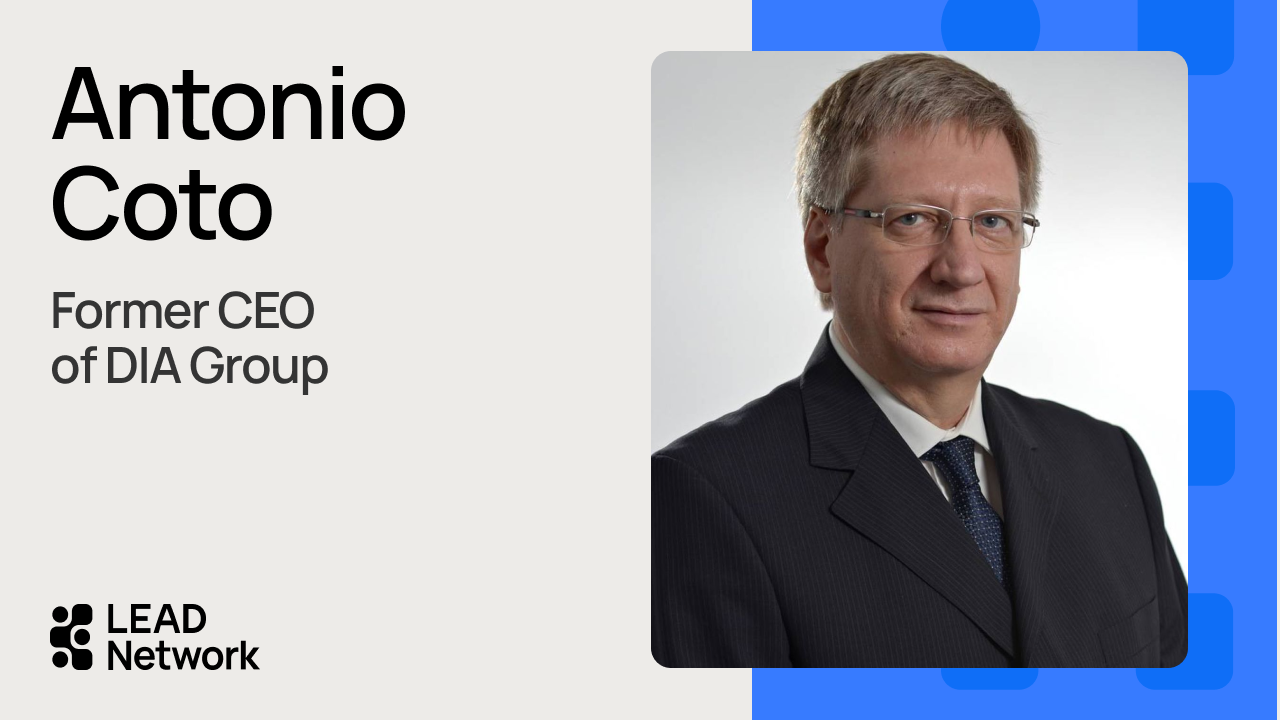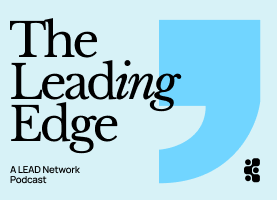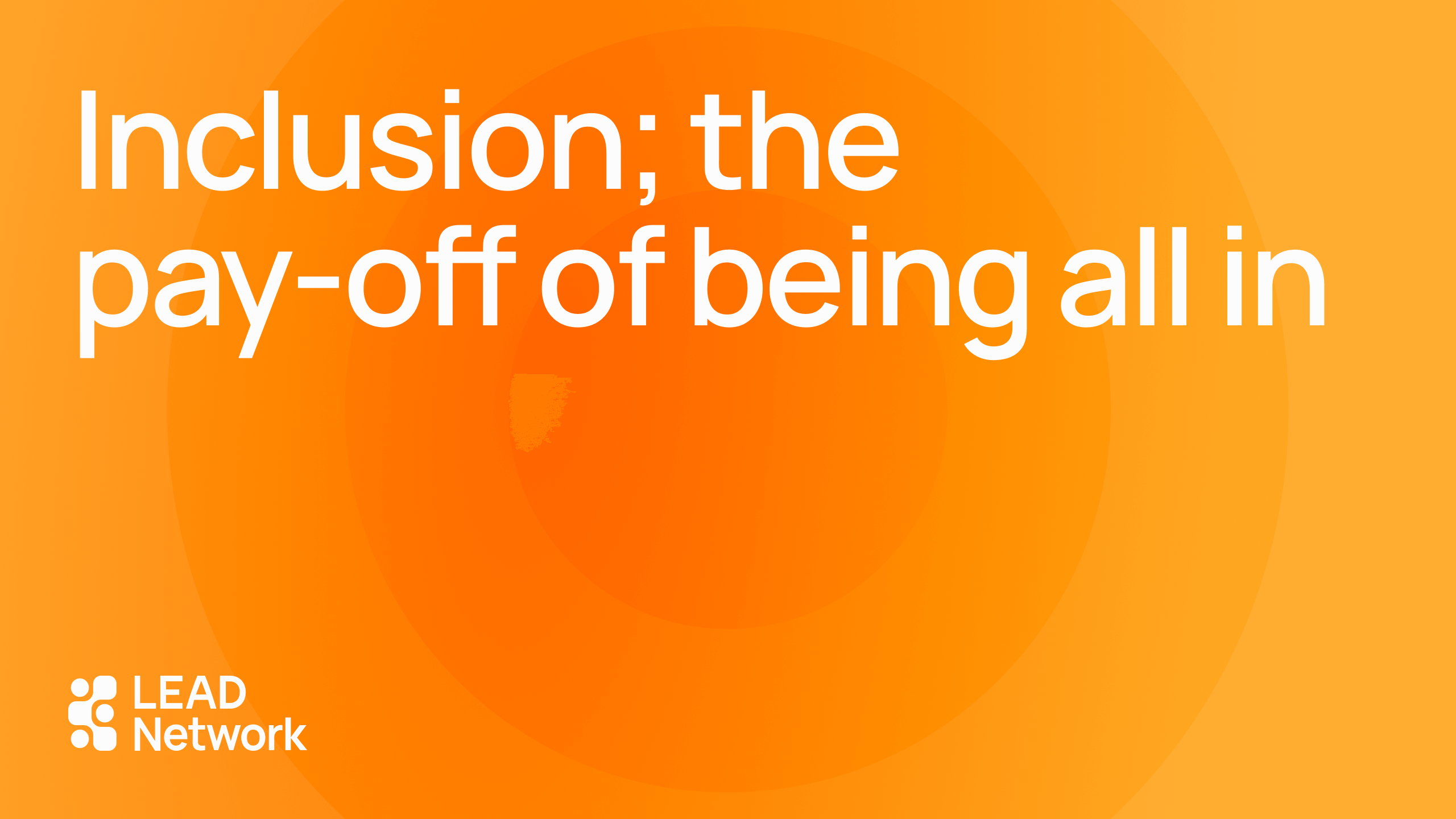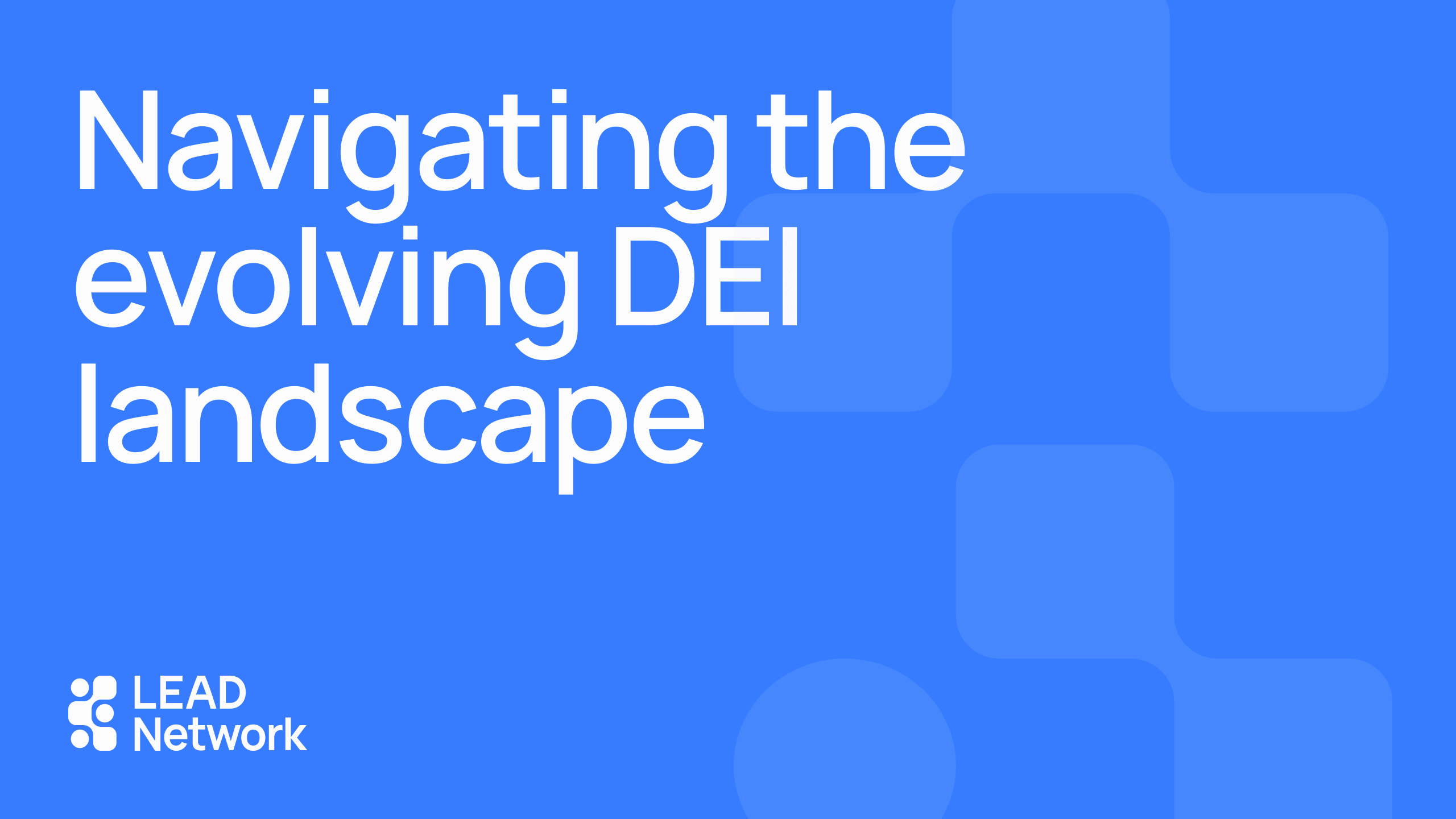A View from the Top: An Interview with Antonio Coto

by Lidia Timkovskaya-Zykova
Antonio Coto is a corporate advisor to retailers and consumer-oriented companies, and the former CEO of international retailer DIA Group. He is also an executive member of numerous global organisations. He spoke to LEAD Network about our CEO Gender Parity Pledge, first introduced in 2017, and why it’s so important for CEOs to get involved.
Why is it important for CEOs to sign the CEO Pledge?
“All of us know people who say they deplore gender inequality but do little to challenge it in practice. Signing the CEO Pledge is an excellent way for ethical companies to stand up and publicly say they will do the right things to promote gender diversity and inclusion. And it’s a great way to communicate the message to their associates, customers, the industry, and society. There are two other main reasons for signing. Firstly, your company should represent a mix of people in society to avoid bias and disconnection from consumers. Diversity is a key driver for innovation: new ideas come from different backgrounds and diverse perspectives. Secondly, signing a public commitment to female empowerment reflects a strong resolution from a CEO. When a CEO signs the Pledge, it means there will be time, money, and resources available to make it happen.”
Signing the CEO Pledge is an excellent way for ethical companies to stand up and publicly say they will do the right things to promote gender diversity and inclusion.
What would you say to someone who is considering signing?
“It’s very important that the CEO Pledge is signed by as many companies as possible. LEAD Network is a great platform to support best practice sharing and progress monitoring. It’s no longer a one-off company move, but instead an industry-wide movement, where members support each other and are united to tackle challenges and find solutions. The CEO Pledge is a ‘seal’, a public commitment, showing the company believes in diversity and will make it happen.”
What role does diversity play for retailers?
“Both consumer goods manufacturers and retailers are important in bringing about change in this industry, but it’s retailers that are in direct daily contact with shoppers and consumers. Consumers can’t see what’s going on inside manufacturers’ plants and offices, but when they go into a store, they can see if the retailer is focusing on diversity. So it’s crucial for retailers to make sure their workforce reflects society. In this respect, the CEO Pledge is a great way to commit to the change and make it happen. The most powerful way to demonstrate diversity is to have your people at stores, from cashiers to store managers, proudly speaking about the Pledge to their shoppers and consumers. This will only happen if retailer CEOs lead the change throughout the whole organisation in a transparent, clear and natural way.”
The CEO Gender Parity Pledge was created to provide an action-oriented way for CEOs to demonstrate their commitment to the cause. Since 2017, the pledge has been signed by companies like ASDA, Asahi Europe & International, Henkel and Danone. If you need a refresher, here’s the pledge in full.
The LEAD Network CEO Gender Parity Pledge
Embracing Change: Transformation through Diversity
We commit to meaningfully accelerate gender parity and drive inclusion in the European Retail & CPG value chain by…
- Striving to create new norms towards parity
- Engaging in courageous conversations about ways to truly create inclusive cultures where everyone can thrive
- Educating employees about the negative impact of bias on retention, development and advancement of women
- Continuing to coach and mentor female & diverse employees, while also increasing sponsoring
- Assessing current recruiting strategies and ensuring there are intentional efforts to hire, promote and pay equitably female & diverse employees
- Instituting a diverse slating process committed to always selecting the best talent, and requiring 50% of those considered to be diverse
- Creating transparent, contemporary practices and policies
- Leveraging LEAD Network to share leading practices
… resulting in a significant increase in female representation at the Director level and above.
We commit to a significant percentage point increase in 3 years (at least 5%) from our current corporate baselines, collectively increasing the latest LEAD industry scorecard baseline and to building a plan to achieve gender parity over the next decade.
If you’re interested in finding out more, click here.
Share this article
More articles
February 17, 2025
November 3, 2024
October 17, 2024



